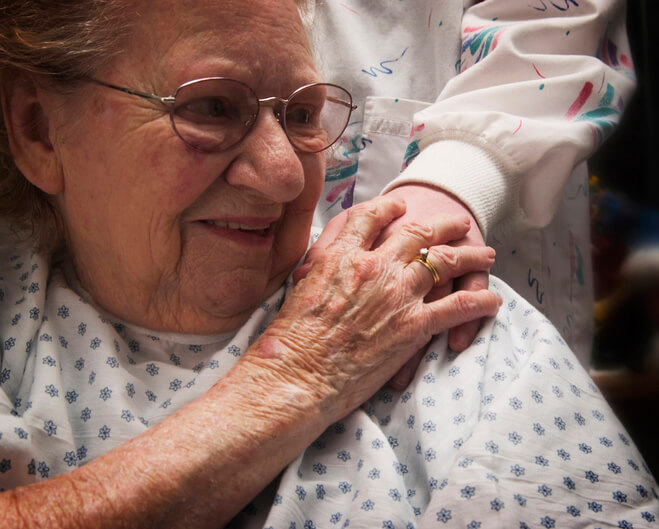Barriers & Challenges To Consider When Receiving Palliative Care

For patients facing life-threatening illnesses, palliative (pronounced PAL-lee-uh-tiv) care can be an important addition to their treatment. The field of palliative medicine, as opposed to cure-focused medicine, is centered on relieving suffering by evaluating and treating pain and other physical symptoms, as well as the psychological and spiritual issues associated with serious illness.
Palliative Care vs. Hospice Care
Palliative care and hospice care are related but distinct disciplines. Palliative care can, and should, be provided as soon as a patient is diagnosed. It is delivered in tandem with efforts to treat the illness. Hospice care, which also focuses on alleviating the many symptoms of an illness, begins after treatment of the disease has stopped and the patient and their family are facing end-of-life challenges.
Understanding this distinction is important for patients and families, as being offered palliative care does not necessarily mean that efforts to halt the illness have been discontinued. The focus of palliative medicine is to provide physical, emotional and spiritual relief, regardless of how or whether the medical condition is progressing.
Why Palliative Care may be Underutilized
Palliative care can provide many benefits. So, why isn’t it used by everyone with a life-threatening illness? There are a number of reasons, including:
- Unfamiliarity with palliative care. Many patients and families simply don’t know that there is such a thing as palliative care. They don’t realize that care providers can do more to address quality-of-life issues.
- Misperceptions about the intent of palliative care. Of those people who’ve heard of palliative care, many don’t fully understand what it is or what its objectives are. They may think of it as a type of care that’s only available when a person is in hospice.
- Difficulty initiating palliative care discussions. Some doctors find it hard to start conversations with patients and families about palliative care. Physicians have concerns that the discussion may frighten families or make them feel abandoned or angry.
- Cultural issues associated with palliative care. While it isn’t accurate, the perception that turning to palliative care is “giving up” on fighting the illness is strong in many care settings and with many families.
- Concerns about costs and insurance coverage. Patients, who are often already facing large medical bills, may worry that adding a palliative care element to their care will only create a greater financial burden for their family.
Overcoming Patient and Family Concerns About Palliative Care
The key to more timely and effective use of palliative care is improved communication. Care teams should initiate palliative care conversations early in treatment for patients that may ultimately need it. Patients and families that know about this type of care should ask their doctor about it. And finally, we should all raise awareness about the many benefits of palliative care by talking about it with our friends and family.
Learn more about palliative care at Baptist Health.



